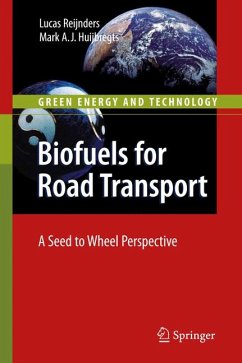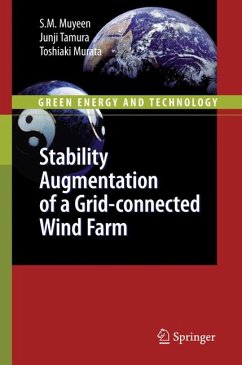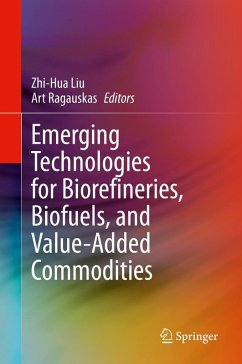
Biorefineries (eBook, PDF)
For Biomass Upgrading Facilities
Versandkostenfrei!
Sofort per Download lieferbar
112,95 €
inkl. MwSt.
Weitere Ausgaben:

PAYBACK Punkte
56 °P sammeln!
Industrial biorefineries have been identified as the most promising routes to the creation of a bio-based economy. Partial biorefineries already exist in some energy crop, forest-based, and lignocellulosic product facilities. Biorefineries: For Biomass Upgrading Facilities examines the variety of different technologies which integrated bio-based industries use to produce chemicals; biofuels; food and feed ingredients; biomaterials; and power from biomass raw materials. Conversion technologies are also covered, since biomass can be converted into useful biofuels and biochemicals via biomass upg...
Industrial biorefineries have been identified as the most promising routes to the creation of a bio-based economy. Partial biorefineries already exist in some energy crop, forest-based, and lignocellulosic product facilities. Biorefineries: For Biomass Upgrading Facilities examines the variety of different technologies which integrated bio-based industries use to produce chemicals; biofuels; food and feed ingredients; biomaterials; and power from biomass raw materials. Conversion technologies are also covered, since biomass can be converted into useful biofuels and biochemicals via biomass upgrading and biorefinery technologies.
Biorefineries: For Biomass Upgrading Facilities will prove a practical resource for chemical engineers, and fuel and environmental engineers. It will also be invaluable in academic fields, providing useful information for both researchers and students.
Biorefineries: For Biomass Upgrading Facilities will prove a practical resource for chemical engineers, and fuel and environmental engineers. It will also be invaluable in academic fields, providing useful information for both researchers and students.
Dieser Download kann aus rechtlichen Gründen nur mit Rechnungsadresse in A, B, BG, CY, CZ, D, DK, EW, E, FIN, F, GR, HR, H, IRL, I, LT, L, LR, M, NL, PL, P, R, S, SLO, SK ausgeliefert werden.












